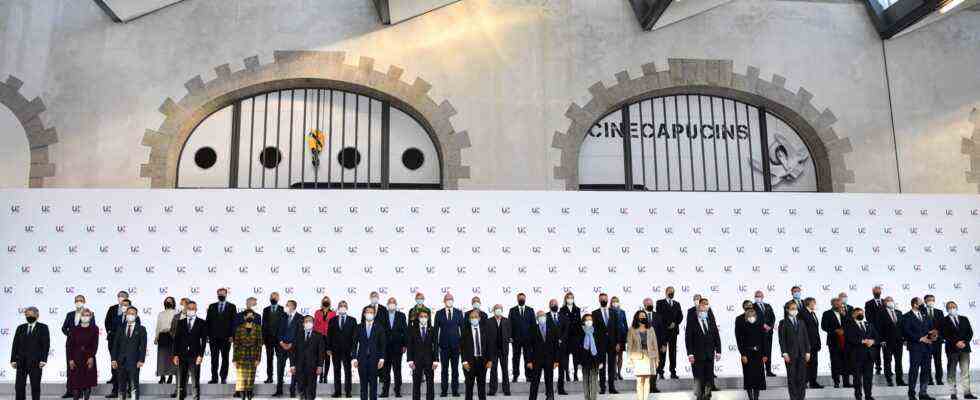As of: 01/13/2022 7:06 p.m
What’s Next in the Ukraine Conflict? How should the EU position itself? Their foreign and defense ministers have discussed this. But differences remain, especially when it comes to Russia.
No, the impression is deceptive, asserted the EU’s foreign policy representative, Josep Borrell, in Brest, Brittany. The Europeans are by no means left out on the Ukraine issue. Washington and Moscow could not decide over the heads of the EU, they are sitting at the negotiating table: “Don’t split the EU! On the contrary,” he said. We are in close contact with the United States. “And we will remain so, because it has been assured that nothing on European security issues will be agreed without the participation and involvement of Europeans.”
But these statements show that the impression has actually been given in the past few days that Europe is just a spectator in the high-level talks with Russia. This is exactly what should be dispelled in the joint deliberations of the EU foreign and defense ministers. There, the participants tried to draw first lessons from the talks with Russia earlier in the week.
Baerbock: “Europe is a heavyweight”
German Foreign Minister Annalena Baerbock emphasized that the EU must act as one towards Moscow, “to make it clear that we can also act most strongly against authoritarian regimes if we act together and as one. Europe is a heavyweight when it is united. When if we’re not, we’re fighting under our weight class.”
It was clear that we also had to talk about what Europe could offer the Kremlin. For example, joint talks on disarmament and transparency. But the Green politician did not want to reveal any details. Now that you’ve just sat down at the table, don’t openly comment on “any individual considerations,” Baerbock said. “The important thing is that we’re sitting at the table, that talks are being held now, even if it’s hard, with a lot of patience and perseverance.”
Within the EU, some partners would like clearer language. Not only must it be made clear to Moscow that an intervention in Ukraine, for example, would have serious consequences. In this case, Europe must also threaten concrete sanctions, demands Poland, for example. There they also want to use the new natural gas pipeline Nord Stream 2 as a means of pressure.
Asselborn: “We can’t get any rest with our fists”
Others consider the confrontation to be the wrong path, such as Luxembourg’s Foreign Minister Jean Asselborn. “We won’t get any rest with our fists. We will only get rest if we have arguments and convince the Russian side that they have to take part in this process,” stressed Asselborn. He is convinced that the course will be set for the next 50 years in the European security architecture.
The long-term perspective was also an issue at the joint ministerial meeting in Brest. The so-called strategic compass, which is intended to make the EU fit for new threats, was also discussed there. For example hybrid warfare, cyber attacks or attacks from space.
We have come a long way here, said EU foreign policy chief Borrell: “I hope that decisive steps will be taken today – so that this improved and expanded concept will be accepted by the defense ministers.”
It could be ready for signature in March. An instrument to give Europe as a whole more weight in world politics and to become more independent from the USA. This is necessary so that the Europeans can have a say at eye level, especially in the current crises.
EU defense and foreign ministers meeting in Brest: Europe wants to have a say
Michael Schneider, SR Brussels, 13.1.2022 5:22 p.m

